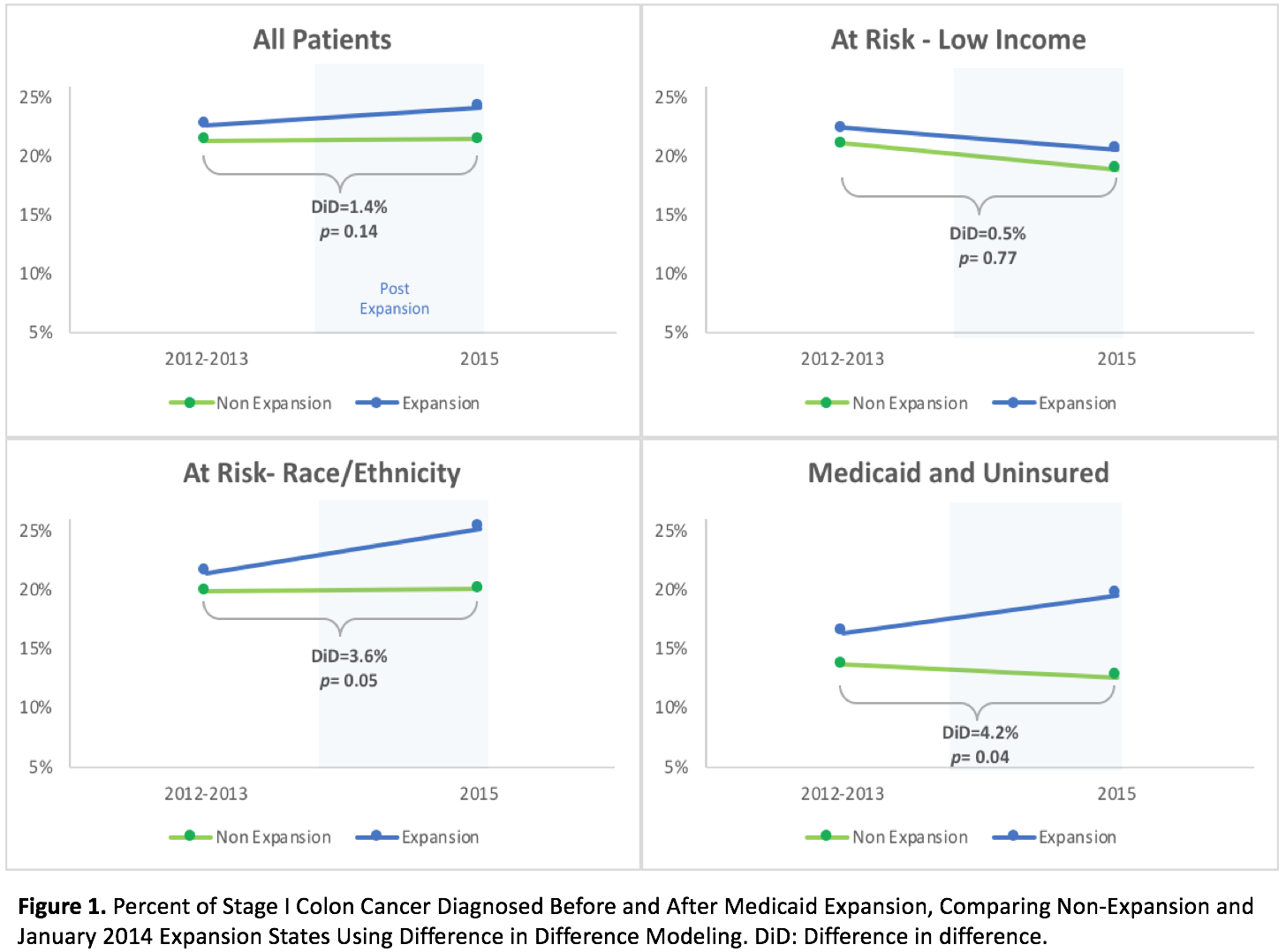Studying the Impact of Medicaid Expansion on Cancer Care
*Michelle C Salazar, *Maureen E Canavan, *Samantha L Walters, *Jeph Herrin, Walter E Longo, *Daniel J Boffa
Yale University School of Medicine, New Haven, CT
Objective: Medicaid expansion (ME) has the potential to address disparities in cancer care in the United States. The impact of ME on cancer care, may appear differently, depending on the approach used to focus on ME beneficiaries. Design: Retrospective cohort. Setting: National Cancer Database. Patients: Patients aged 40-64, that underwent colectomy for treatment-naïve colon cancer diagnosed 2012-2015 were evaluated. Patients from states that expanded in January 2014 (19 states), were compared to patients from states that never expanded (19 states) across two time points (2012-2013=pre-ME and 2015=post-ME). Interventions: Stratification of patients by sociodemographics to preferentially study ME beneficiaries. Main Outcome Measures: Given hypothesis that access to insurance results in increased cancer screening and proportion of early-stage cancer, the percent of pathologic Stage-I colon cancer was studied pre and post-ME. Difference in difference (DiD) modeling was used to compare the trend in ME states to that of states that never expanded. Results: The percent of pathologic stage-I was determined within ME states. Among all colon cancer patients (n=35,578) 22.7% were stage-I pre-ME and 24.2% post-ME. For patients in lowest income zip-codes (n=8,368), stage-I was 22.4% pre-ME and 20.6% post-ME. Among non-white/Hispanic patients (n=10,276), stage-I was 21.4% pre-ME and 25.3% post-ME. Among uninsured and Medicaid patients (n=6,601), stage-I was 16.4% pre-ME and 19.6% post-ME. Only stratification by insurance status demonstrated an increase in stage-I post-ME that was significantly different from states that never expanded (DiD=4.2%, 95%CI 0.4-8.0, p=0.04). Conclusions: Different approaches used to study the impact of ME resulted in heterogenous results. 
Back to 2020 Posters
